Solar energy is most likely the best way to go for renewable energy. In truth, solar panels can produce constant power for a long time. But you won’t be wrong to ask: What is the average solar panel lifespan?
Unarguably, solar panel lifespan depends on a few factors. The type of photovoltaic cells you buy will also determine how long you’ll enjoy your solar system.
This article will explore the factors affecting solar panel lifespan and how long you should expect them to last.
What is the Life Expectancy of a Solar Panel?
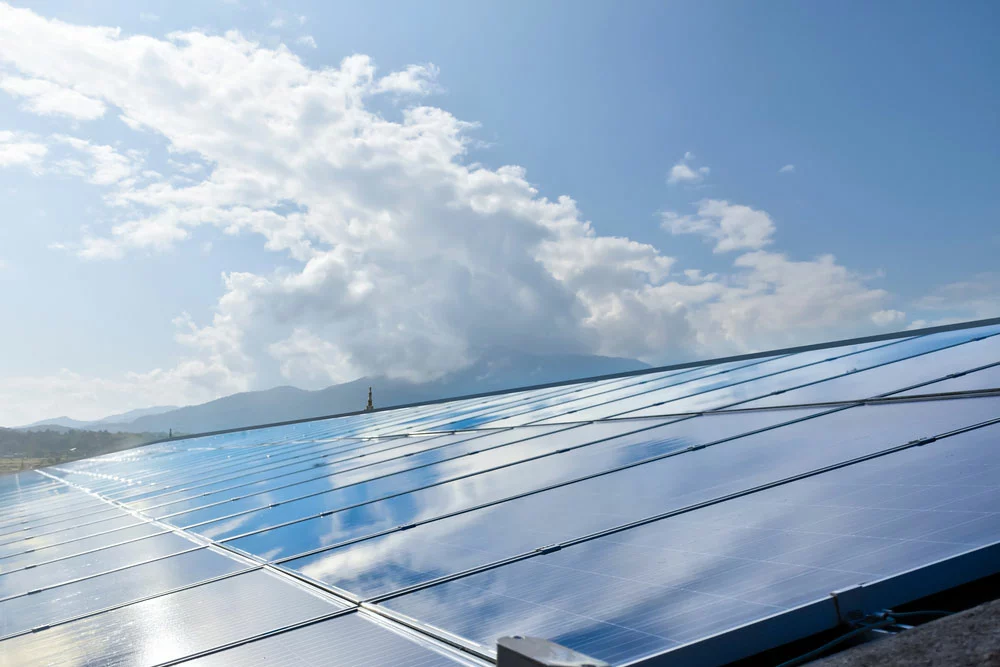
Solar panels facing the sun
The standard lifespan of solar panels is about 25 to 30 years. If your solar cells have lasted longer, they will be lower than what your manufacturers consider good.
Solar panels have a high life expectancy because they don’t use moving parts. Also, the chances of them breaking from the wind are low. Unfortunately, external forces like inclement weather or poor setup are more likely to damage them.
However, various solar panel types come with different life expectancies and lifespans. Let’s take a look:
Lifespan for Monocrystalline Solar Panels
These solar panel types can produce power from 25 to over 50 years. Monocrystalline panels can enjoy this extended lifespan because they have only one crystal, which reduces potential error points.
Lifespan for Polycrystalline Solar Panels
You can use polycrystalline solar panels to power your home for up to 25 years. Unlike monocrystal variants, these panels have multiple crystals that will separate due to electrical forces, which reduces efficiency.
Lifespan for Thin-film Solar Panels
Unlike their silicon cousins, thin-film solar panels can last anywhere between 10 to 20 years. However, they offer more advantages and better pay-offs.
Why do Solar Panels Degrade?
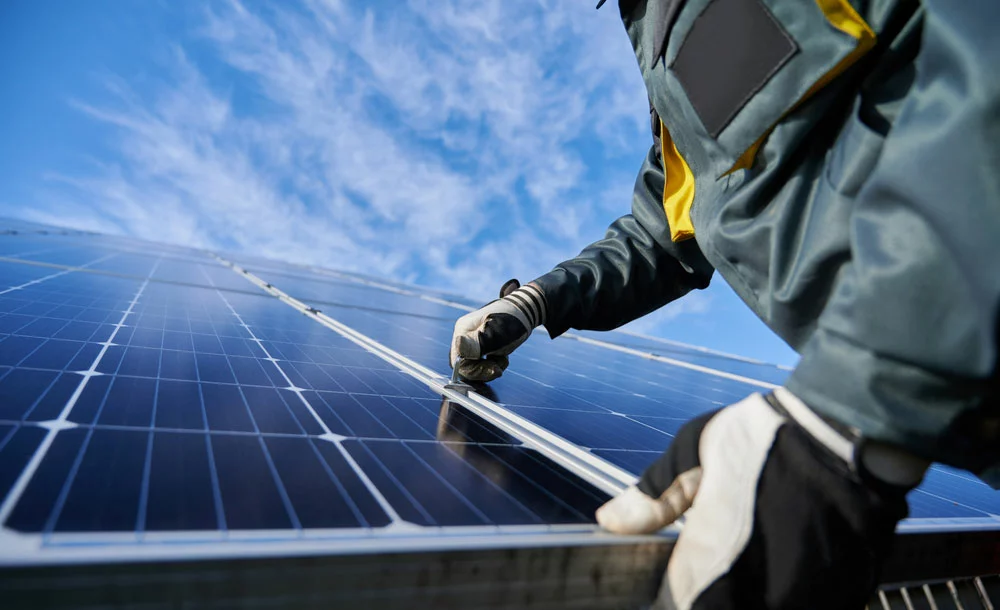
Man is working on solar panels
Your solar panels can degrade for various reasons. One of the most common is exposure to the elements. You can’t protect your panels from inclement weather and UV radiation exposure.
Hence, degradation is inevitable.
Also, solar panels have metal frames holding them in place. Unfortunately, these frames can also erode over time. Electrical faults and overheating are other factors contributing to panel degradation.
Solar Panel Degradation Rate
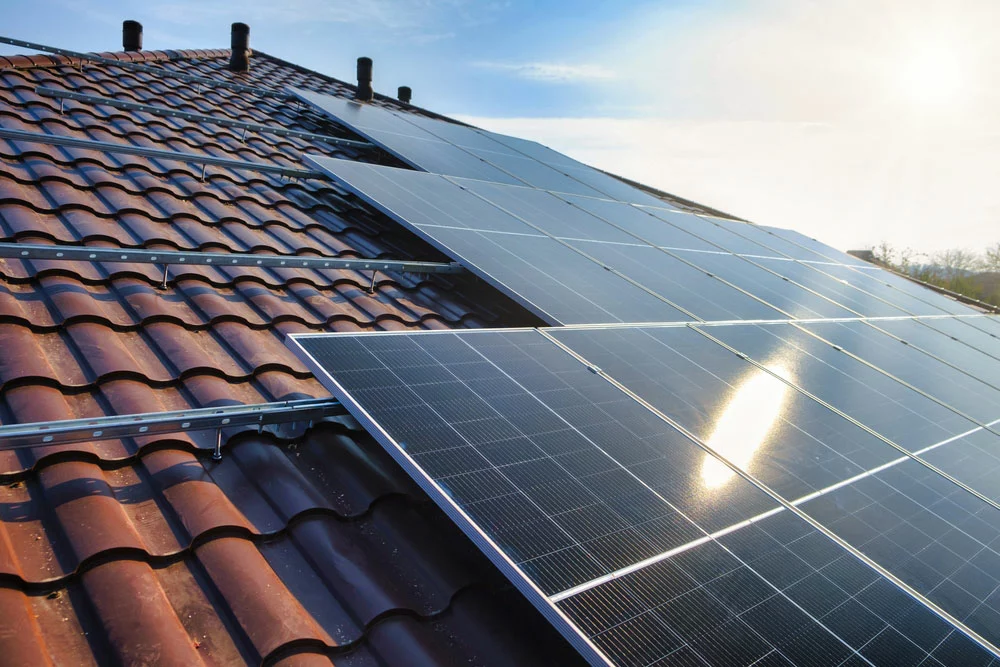
Solar panels on a roof
It’s no secret that your panels will eventually lose their ability to absorb and convert sunlight into solar energy. This process is what we call the “degradation rate.”
Additionally, panels with lower degradation rates will have a better life expectancy. Such panels will also generate more energy over their lifespan.
Different brands offer various degradation rates. It’s crucial to check this factor when purchasing solar panels. Most high-quality brands offer degradation rates as low as 0.30%/year.
Check out the various degradation rates offered by different pane types.
| Panel type | Original output after 25 years | Reduction after 25 years | Degradation rate |
| Tier 3 | 82.47% | 17.53% | 0.80% |
| Tier 2 | 88.67% | 11.33% | 0.50% |
| Tier 1 | 93.04% | 6.96% | 0.30% |
A 0.80% degradation rate is the worst on the market, while 0.50% is more of a benchmark. Tier 1 solar panels are a better investment because they’ll only degrade by .30% each year.
Tier 2 solar panels can also offer good performance, as they’ll suffer only a .50% reduced performance per year.
Factors that Affect Solar Panel Lifespans and Efficiency
Most factors affecting solar panel lifespan are well beyond your control. You can’t cover up your solar panels; otherwise, they won’t function. So, they will always suffer from various conditions.
Some of these factors can hurt your solar panel’s lifespan:
Installation:
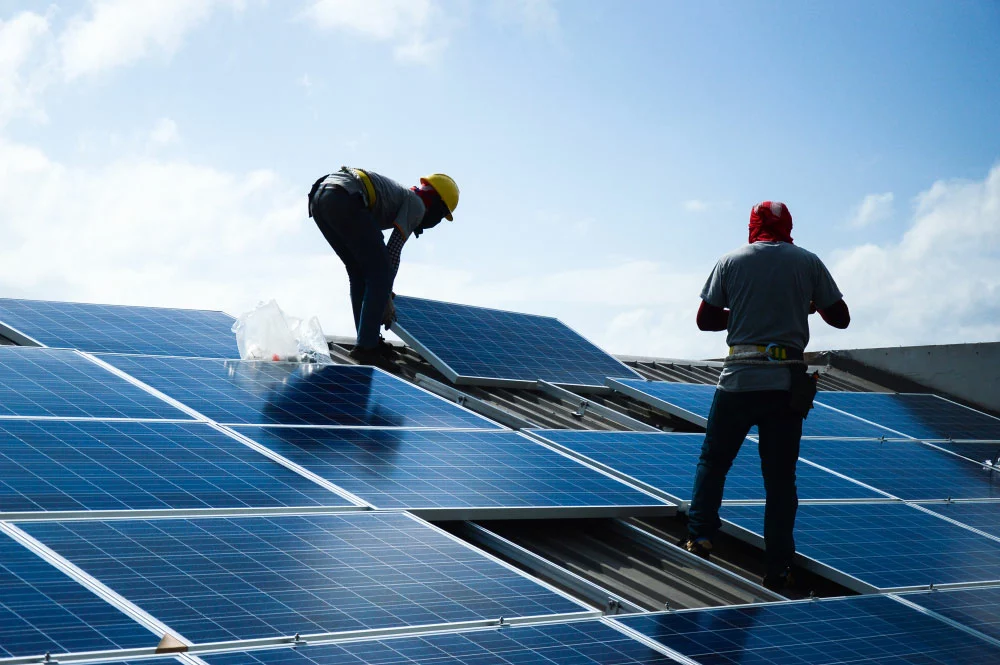
Men installing solar panels on a roof
An improperly wired and installed solar panel will suffer faster degradation rates. How you install your panels and their racking system will determine if they can withstand some other factors listed in this article.
For this reason, we recommend opting for experienced installers to keep your panels well-secured over a long period. That way, you can rest assured that the structure will support long-term use.
Climate and Temperature
Climate and temperature are factors that you can’t control. Also, extreme weather conditions will contribute to your panel’s degradation.
However, several conditions and temperatures have different effects. Let’s take a closer look:
Rain
Rain can cause your solar panel’s structure to corrode without correct installation. Corrosion severely impacts efficiency and heightens degradation rates. Even worse, corrosion may weaken the metal framing and setup, causing unwanted damage.
Heat
Extremely hot temperatures can crack your solar panel’s surface, allowing moisture to infiltrate the system. This situation is critical as it quickens degradation and affects your panel’s output energy.
Heat may also discolor the cells rendering the solar system less efficient.
Snow
Snow comes with extreme freezing temperatures, which can cause photovoltaic cells to crack, frames to separate, and panels to warp. That’s not all. A thick layer of snow may settle on top of the surface, adding extra weight to the structure.
Wind
Strong winds can vibrate your solar system’s construction. Such situations may loosen the fasteners securing various parts. These offer similar harmful effects to vibrations from machinery.
Quality
The quality of your solar panels determines their efficiency and output. Therefore, you can expect low-quality panels to have a low lifespan and high degradation rates.
Maintenance
Your panels need regular maintenance to give only the best performance. Solar panels may degrade faster if they remain dirty, have debris, or you don’t perform periodic maintenance.
When Should I Plan to Replace Solar Panels?
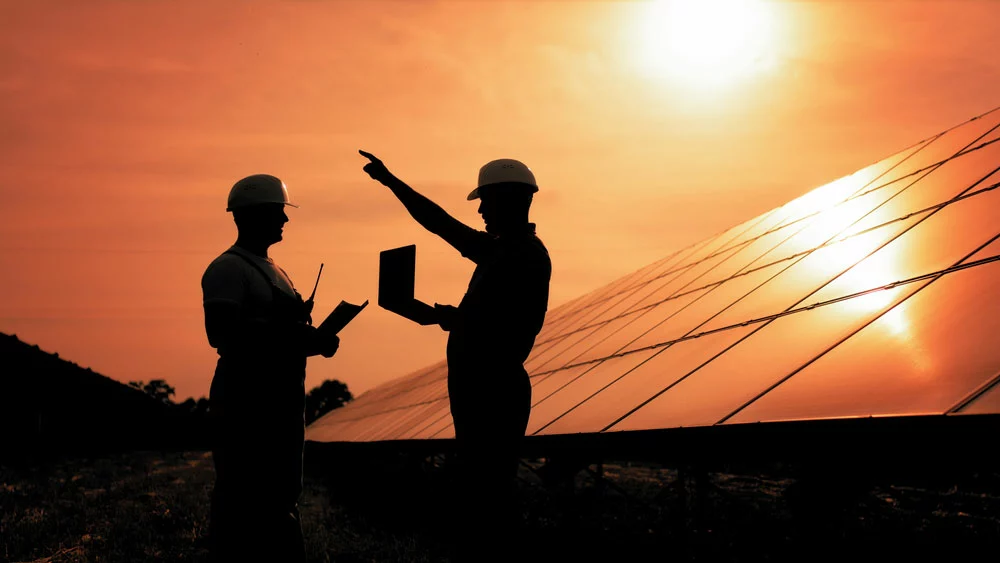
Two men in front of solar panels
If your solar panels can’t generate enough power to control your electricity bills, it’s a sign that they’re ready for replacement. Thankfully, degradation rates have improved over the years. If you’re swapping an older model for a current version, it won’t degrade as fast as its predecessor.
Also, apps or physical trackers can help you monitor how much power your solar cells generate. These tools can show you how fast the panels are degrading.
Don’t worry if your output is slightly less than it was initially. It’s not a sign of replacement. However, you may want to start saving for a new one.
Tips to Make Your Home Solar Panels Last Longer
The pleasant news is that solar panels don’t need much maintenance unless your area is prone to dust, dirt, and other debris. Here are some tips to make your solar system last longer.
Remove Debris and other Harmful Materials from Your Panel’s Surface
Dust, dirt, leaves, and other materials can accumulate on your panel’s surface, which reduces its efficiency. Most times, rain can help clean your panels. But you can consider professional cleaning if you notice a performance decline.
Also, ensure your panels are far away from branches. The shade can reduce output, or they may fall during heavy storms, causing critical damage.
Monitor and maintain your panels regularly
Ensure you do regular maintenance checks to help sustain your solar array’s performance. Also, maintenance routines will keep your meters, inverters, and other parts running smoothly.
Purchase from a Trustworthy Solar Provider
Purchasing from a reputable solar provider is an excellent way to ensure your solar panel’s longevity. Some solar providers offer attractive services, like maintenance packages for their product’s lifetime.
Rounding Up
Solar panel systems are great and can last for extended periods. But thinking they would last forever would only bring disappointment. However, you can watch for factors like degradation rate, panel type, and quality to help boost your array’s longevity.
Additionally, little maintenance routines can help add more to your system’s lifespan. Although you can’t control most factors that cause degradation, you can follow the tips stated in this article to maximize your panel’s performance.
